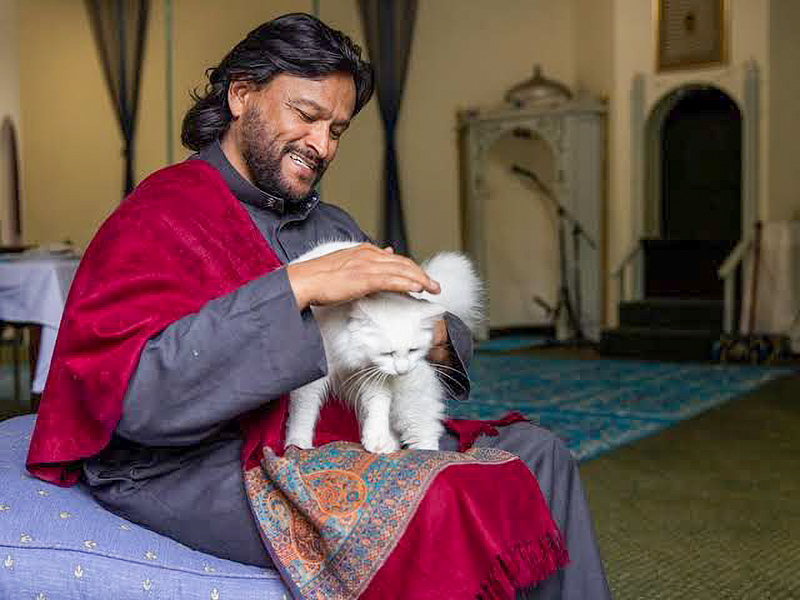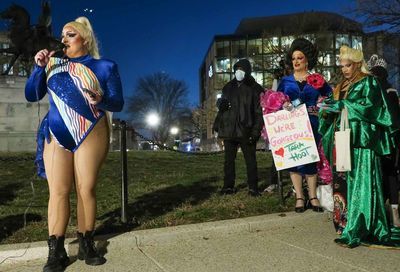D.C. Offering Monkeypox Vaccines to At-Risk Populations
Among those advised to get the vaccine are gay and bi men, trans women, sex workers, and workers at saunas and bathhouses.


On Monday, the D.C. Department of Health began offering a limited amount of appointments for monkeypox vaccinations to eligible District residents.
Less than 20 minutes after appointment slots were made available starting at 1 p.m., all appointments for Tuesday and Thursday had been reserved. According to the DC Health website, additional appointments for Sunday, July 3, will be made available when the appointment portal opens again on Wednesday, June 29.
Dr. Anil Mangla, the state epidemiologist for the D.C. Department of Health, told Metro Weekly that DC Health will be providing the Jynneos smallpox vaccine, which is offered in two doses two weeks apart, to at-risk populations, based on supply provided by the department by the Centers for Disease Control and Prevention.
He noted that the CDC is expected to consider whether to distribute doses of the ACAM2000 smallpox vaccine, which is administered in a single shot, to various health departments around the country.
Residents who are recommended to pursue vaccination include:
- Gay and bisexual men, and other men who have sex with men and have had multiple partners or engaged in anonymous sex in the last 14 days.
- Transgender women or nonbinary people assigned male at birth who have sex with men.
- Sex workers of any gender.
- Staff, regardless of gender, who work at establishments where sexual activity occurs, such as bathhouses, saunas, sex clubs, or private residences.
Residents seeking to be vaccinated must be older than 18 years of age, and must provide confirmation of their appointment time and proof of residency, such as driver’s license or ID card with DC address, a utility bill or other mail bearing the patient’s name and address, or a current lease or mortgage document.
Vaccinations will be offered free of charge, and will occur on Tuesdays, Thursdays, and Sundays between 1 and 8 p.m. at 7530 Georgia Ave. NW.
While monkeypox, which derives from the same family of orthopoxvirus as smallpox, is rare in the Western Hemisphere, the virus that causes the illness can be transmitted from person to person through either respiratory secretions during prolonged face-to-face contact, direct contact with bodily fluids or monkeypox lesions during intimate physical contact like sex, kissing or hugging.
Transmission can also occur by touching fabrics, bedding, and towels used by a person with monkeypox lesions.
“As of last Friday, we have over 4,100 cases worldwide, distributed across 47 countries. So it’s spreading,” Mangla says. “But it’s rare to get transmitted via the airborne route. It’s not like COVID. You need to be in very close contact for a long time with somebody that may have lesions around the mouth area. Not one case in the United States thus far has been through airborne transmission.”
While monkeypox can spread to anyone, and is not considered a sexually-transmitted disease, the majority of cases in the District of Columbia have been among men who have sex with men.
Mangla says that’s why DC Health is specifically promoting the vaccines among men who have sex with men.
“Our data nationally is showing that more than 95% of individuals fall into the category of gay, bisexual, or transgender. In D.C., we’ve seen an even a higher percentage of that. So we are really focusing on those particular high-risk populations. If we can provide them with the adequate vaccines, we can really mitigate this as soon as possible.”
Because Western nations such as the United States stopped vaccinating children against smallpox — which is 93% similar to the Monkeypox virus — nearly 50 years ago, anyone who is not vaccinated and falls within the at-risk groups is potentially vulnerable to contracting monkeypox, whose spread has been aided by the rapidity of modern-day travel.
In Europe, clusters of monkeypox infections have been traced to a circuit party in Spain and a fetish festival in Belgium, as well as bathhouses in several major cities.
Initial symptoms of the disease often include flu-like symptoms such as fever, headache, muscle aches, and swollen lymph nodes, followed by a rash and pustule-like lesions on the skin.
Although most cases do not require hospitalization, the disease is highly contagious and can result in discomfort for those infected. Those who are infected are recommended to isolate for two-to-four weeks until the rash has fully healed and a new layer of skin has formed where the scabs and lesions once were.
Patients with rashes are also advised to wear long-sleeved shirts and long pants to cut down on potential transmission.
Those who begin displaying symptoms of monkeypox are advised to seek out a health care provider or a local wellness clinic.
Those in at-risk groups seeking more information on vaccination, or who wish to make an appointment, are advised to follow DC Health’s social media channels for updates or visit PreventMonkeypox.dc.gov.
Support Metro Weekly’s Journalism
These are challenging times for news organizations. And yet it’s crucial we stay active and provide vital resources and information to both our local readers and the world. So won’t you please take a moment and consider supporting Metro Weekly with a membership? For as little as $5 a month, you can help ensure Metro Weekly magazine and MetroWeekly.com remain free, viable resources as we provide the best, most diverse, culturally-resonant LGBTQ coverage in both the D.C. region and around the world. Memberships come with exclusive perks and discounts, your own personal digital delivery of each week’s magazine (and an archive), access to our Member's Lounge when it launches this fall, and exclusive members-only items like Metro Weekly Membership Mugs and Tote Bags! Check out all our membership levels here and please join us today!























You must be logged in to post a comment.